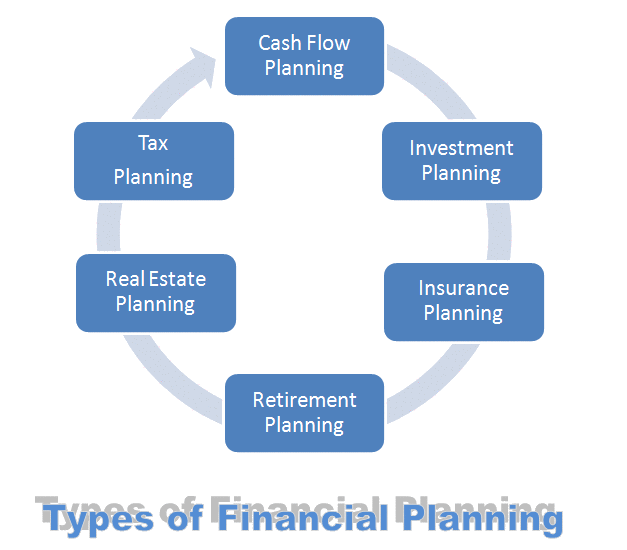Financial planners are crucial in helping their clients become more financially empowered and aware. Through education and individualized counseling, they enable people to make wise financial decisions, build sound financial habits, and plan a route to prosperity and financial stability. Let us look into the meaning of financial planner along with scope and how to become a financial planner.
Financial planning, which involves the strategic management of finances in order to achieve predetermined goals and objectives, is an essential part of both personal and professional life. Achieving these objectives requires careful financial planning, whether the objective is building wealth for future generations, securing a comfortable retirement, or paying for a child’s education. Fundamentally, financial planning comprises assessing a person’s or entity’s financial situation in-depth and then developing a comprehensive plan that fits their unique needs and situation.
Financial Planner Definition
A financial planner or personal financial planner is a professional who prepares financial plans for people. Managing cash flow, retirement plans, investment strategies, financial risk, insurance policies, tax, estate and business succession plans are the criteria or area of expertise of a financial planner.
Role of a financial planner is to optimize the revenue of his client by structuring some brilliant, cost effective strategies. It often happens that people confuse financial planners with stockbrokers. Financial planners are way different than these brokers as a matter of fact they also differ from the guy who helps you in lowering your tax bill – called an accountant. Insurance agents might allure you in with complicated life insurance policies but they’re not financial planners.
When you realize the importance of a financial planner you should always be thorough before you finalize your own financial planner. You can always ask your peers for recommendations. Before finalizing your finance guy, do a complete background check, know what kind of financial services does he specializes in. Know about his credentials, certificates or any special achievements. Don’t be shy to ask for a sample finance plan this is important because everyone has their own approach towards financial management. To be honest, it depends on the nature of the advisor whether or not he entertains such requests.
Steps to Become a Successful Financial Planner
There are six basic steps followed by a certified financial planner while processing the valuation of clients’ finances. Here you will understand how to become financial planner and be successful in it.
He defines the client – Planner relationship prior to evaluation
You will be documented by your financial planner about the services he and his team will provide to you. Moreover he will also clarify the roles of client and the service providers. He is accountable for disclosing any inability to give fair and unbiased advice or possibility of conflict of interest. How to manage your professional relationship should be a mutual decision.
He gathers Intel and data about your goals and financial situation
After agreeing on working together the next job of a financial planner is to collect relevant information regarding your finances. Ofcourse it would be easier for the planner to access the information if you help him discover your sources of finance and assets. Then you can discuss about the time constrain you have or the risk involved and efficiency in result.
He evaluates your financial status
It’s only after he has all the information about your finances, he proceeds to evaluate them. The aim of the financial planner is to provide you with enough income so that you can meet your goals. The financial planner will work accordingly based on what services you’ve asked for. This might include analyzing assets, liabilities, mortgage payments, cash flow, current insurance coverage, investments or tax strategies.
He prepares and presents financial planning recommendations
Let’s understand what the need of financial planning recommendations is. Well, to begin with, these recommendations or alternative plans are entirely based on the information provided to the financial planner by you. They address and optimize your personal and financial goals. Not that he will hand over the document to you and leave, but actually guide you through the papers and you can talk about your concerns and the planner will make appropriate changes.
He assists you during implementation of the recommendations
The financial planner can either work alongside as a team player or serve as a guide while implementing the recommendations. Because let’s face it, documents on table and real life on the field don’t follow the exact same rule. That’s where your planner is supposed to smart and tactful. To implement those recommendations with effectively you can ask him to co-ordinate with other professionals like stock-brokers or any of your relative.
He monitors the financial planning recommendations
If you’re way too busy to keep an eye on your investments or assets, you can ask your planner to do so. He will monitor the financial planning recommendations and will keep you updated with the progress report; you can even ask him to incur any changes you want.
Scope of Financial Planning
Financial planner is expected to optimize his strategies to meet client’s financial needs. He should be skilled and smart enough to accomplish client’s goals. The scope of planning would usually include the following –
1. Risk Management and Insurance Planning – Using risk management and insurance techniques to manage cash flow.
2. Investment and Planning Issues – Planning, creating and managing capital accumulation to generate future capital and cash flows for reinvestment and spending, includes managing for risk-adjusted returns and to deal with inflation.
3. Retirement Planning – Planning to ensure financial independence at retirement including 401Ks, IRAs etc.
4. Tax Planning – Planning for the reduction of tax liabilities and the freeing-up of cash flows for other purposes.
5. Estate Planning – Planning for the creation, accumulation, conservation and distribution of assets.
6. Cash Flow and Liability Management – Maintaining and enhancing personal cash flows through debt and lifestyle management.
Conclusion
In summary, financial planner is more than just money management; it also involves achieving goals, leaving a lasting legacy, and leading a complete life free from financial stress. On this journey, a qualified and committed financial planner serves as a guide, offering knowledgeable counsel, tailored solutions, and unwavering support to help people and organizations successfully negotiate the complexities of the financial world and accomplish their most important objectives.
Read E-Learning Tutorial Courses - 100% Free for All
Financial Planning Basics For Beginners
- Chapter 1: What is Financial Planning with Examples
- Chapter 2: Different Types of Financial Planning Models and Strategies
- Chapter 3: Importance of Financial Planning
- Chapter 4: Personal Financial Planning Process
- Chapter 5: Benefits of Financial Planning
- Chapter 6: Financial Planning Process with Examples
- Chapter 7: Objectives of Financial Planning
- Chapter 8: Limitations of Financial Planning
- Chapter 9: Financial Planning and Control
- Chapter 10: Financial Planning and Analysis
- Chapter 11: Determine Financial Goals - Assessment, Budgeting and Goal Setting
- Chapter 12: What is Optimism Bias - Definition, Effects on Financial Decisions
- Chapter 13: What is Personal Financial Planning? Examples and Templates
- Chapter 14: What is Business Financial Planning? Means, Examples and Process
- Currently Reading: What is Financial Planner? Definition, Steps, Scope
- Chapter 16: Your Rights and Responsibilities as a Financial Planning Client
- Chapter 17: Strategic Planning and Execution of Financial Plan
- Chapter 18: Why Emergency Personal Financial Backup Plan is Needed
- Chapter 19: Top 10 Common Errors - Worst Financial Mistakes to Avoid
- Chapter 20: Basics of Financial Planning Quiz - Question and Answers







